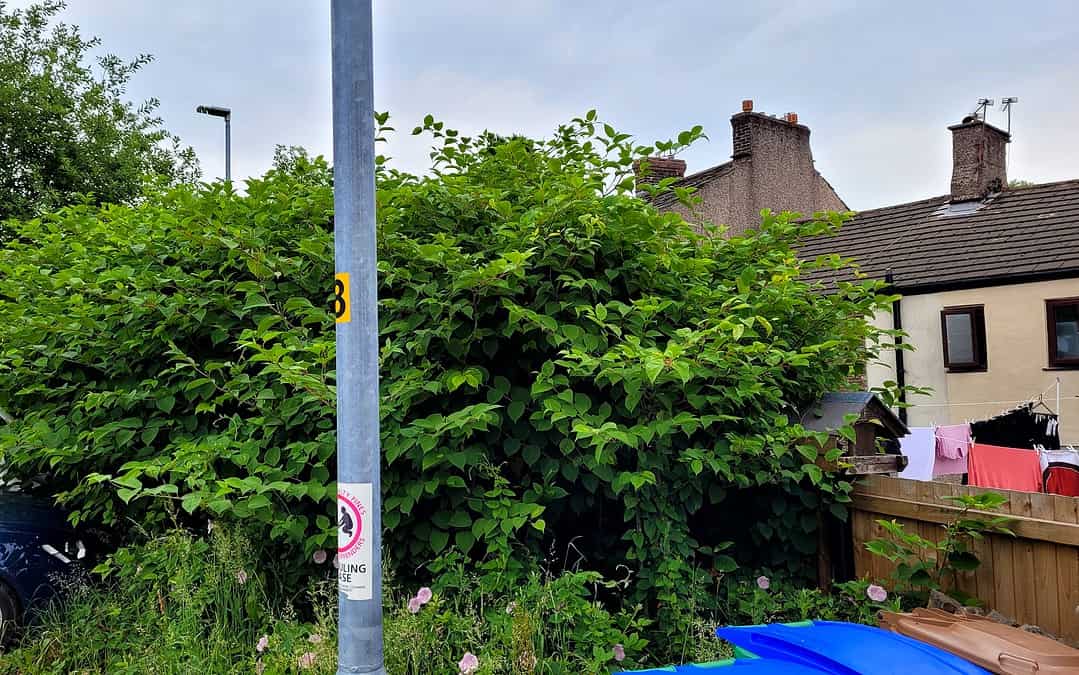Can You Put Japanese Knotweed in the Bin?
Understanding Japanese Knotweed
Japanese Knotweed (Fallopia japonica) is an invasive species of plant native to East Asia. Known for its robust growth and resilience, it can lead to significant damage to properties and natural ecosystems if not managed properly. But, should Japanese Knotweed be disposed of in your everyday bin?
The Legal Implications
Japanese Knotweed is classified as ‘controlled waste’ under the Environmental Protection Act 1990. This means it’s illegal to dispose of it in your household bin. Mismanagement can lead to a hefty fine or even imprisonment, showcasing the severity of the issue.
Why is Japanese Knotweed a Problem?
Understanding the risks associated with Japanese Knotweed helps us appreciate why it should not be treated lightly. This hardy plant can grow up to 10cm a day during summer, swiftly dominating the surrounding vegetation. It can even cause structural damage, breaking through tarmac, concrete, and brickwork.
Is there a Safe Way to Dispose of Japanese Knotweed?
Yes, there are safe and legal ways to deal with Japanese Knotweed. Let’s delve into a few effective methods.
Professional Knotweed Removal
Professional removal is the safest and most effective way to handle Japanese Knotweed. Companies specializing in this area have the expertise and equipment necessary to completely remove and safely dispose of the plant.
On-Site Burial
Another option is on-site burial, which involves placing the Knotweed at least 5 meters below the ground. This method, known as ‘cell formation’, necessitates a thick membrane to prevent regrowth.
Incineration
Incineration is another viable option for Japanese Knotweed disposal. However, all parts of the plant need to be fully burned to ensure no regrowth. It is advisable to seek professional help if choosing this method.
Herbicide Treatment
The use of certain herbicides can also effectively manage Japanese Knotweed. However, the process is typically time-consuming, requiring multiple applications over several seasons.
Key Takeaways
Understanding the risks and the appropriate handling methods of Japanese Knotweed is essential. Always remember:
- Japanese Knotweed is not an average garden weed; its disposal is regulated by law.
- Household bins are not a legal or effective way to dispose of Japanese Knotweed.
- Professional removal, on-site burial, incineration, and herbicide treatment are the most recommended methods for managing Japanese Knotweed.
Moving Forward
Japanese Knotweed may seem an insurmountable problem, but with the right information and resources, it is manageable. It is crucial, however, to understand and follow the legalities involved in its disposal. Ignorance can lead to ecological damage and serious penalties.
Proper disposal of Japanese Knotweed goes beyond merely removing a nuisance. It helps preserve the environment, protect property, and abide by the law. Therefore, never put Japanese Knotweed in the bin.
Implications of Disposing Japanese Knotweed in Your Local Council Bin
Potential Legal Consequences
When you dispose of Japanese Knotweed in your local council bin, you violate the Environmental Protection Act 1990. This statute considers Japanese Knotweed ‘controlled waste,’ meaning it must be disposed of in a manner that doesn’t harm the environment or human health. Non-compliance with these regulations can lead to significant legal ramifications.
These may include:
- Fines: Offenders could face hefty fines for the improper disposal of Japanese Knotweed. Fines can go up to £5,000 for individuals and £20,000 for corporations.
- Prosecution: In extreme cases, if your actions are deemed to have caused environmental harm, you may face prosecution. This can lead to imprisonment for up to two years.
Damage to Local Ecosystems
Japanese Knotweed is an invasive species. If disposed of in a regular bin, there’s a high risk of it spreading to local ecosystems, where it can outcompete native flora. This displacement can lead to a decrease in local biodiversity and disrupt the ecological balance.
Potential Property Damage
The robust growth of Japanese Knotweed can cause considerable property damage. If this plant grows near buildings or infrastructure, its strong roots can infiltrate foundations, walls, and pavements, leading to costly repairs.
Hindrance to Property Transactions
The presence of Japanese Knotweed can also hinder property transactions. If it’s found on or near your property, it could lower its value. Moreover, many lenders are reluctant to approve mortgages for properties affected by Japanese Knotweed.
Reputation Damage
Improper disposal of Japanese Knotweed could potentially tarnish your reputation in the community. As its spread can cause ecological and property damage, neighbors and local council may view such actions negatively.
In conclusion, the implications of improperly disposing of Japanese Knotweed in your local council bin are severe. It’s advisable to contact a professional knotweed removal service to handle this invasive plant responsibly and legally.
